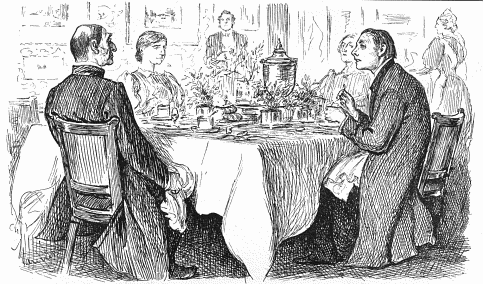 |
| A Jane Austen Christmas: Celebrating the Season of Romance, Ribbons, and Mistletoe, by Carlo DeVito |
Although the popular Regency-era play The Rivals, by Richard Sheridan, is not mentioned by name, Mrs Malaprop of The Rivals has evidently visited these pages, with faux pas including "her supposedly scandalous background proceeded her" (37) rather than preceded, and "the Christmas holiday encroached" (57), which lends a rather sinister sound to the approaching festivities. Jane Austen, I learn with alarm, intends to "altar" her clothes (72), a mistake for alter that conjures up the image of Regency gowns being consigned to sacrificial flames. And at the tragic moment when Tom Lefroy leaves Steventon, I found myself suppressing a untimely giggle at learning that Jane Austen's "hopes had been tuned to ashes" (85).
Mr DeVito shows himself ignorant of basic Regency etiquette, writing that "two dances" are "the maximum you were allowed with the same partner" (73). In reality, Regency country dances were traditionally danced in pairs, and it was impolite to ask the same lady more than twice; thus the maximum number of dances allowed was actually two pairs of dances, four in all. In common politeness a gentleman would dance two dances with many different ladies; he would single out the object of his affections by asking her for the first two dances, and/or asking her twice for two dances each. Notice that Mrs Bennet in Pride and Prejudice speaks of Mr Bingley dancing "the first two [dances]" with Charlotte Lucas (to Mrs Bennet's displeasure), and "the next two [dances]" in successive pairs with the other young ladies at the assembly, asking Jane twice altogether. It's a descriptive quirk that's easy to misunderstand without some background knowledge on Regency ballroom etiquette, but a biographer ought either to have this knowledge or to fake it more convincingly. Mr DeVito also calls Elizabeth Bennet "Ms. Bennet" (76), showing a regrettable modern flippancy toward Regency customs of polite address.
I find it very odd that he does not list Park Honan, an author he quotes frequently (both as "Honan" and as "Honnan" [44, 81] another curious indecisiveness) in his "Selected Bibliography." Park Honan's 1989 biography Jane Austen: Her Life is a perfectly respectable source, and the author ought to be given his due after being quoted from so extensively in multiple chapters -- but perhaps he would prefer to remain anonymous in this context.
Finally, there are numerous minor errors throughout the text that soon become an irritation for those accustomed to Jane Austen's pithy and polished style. However, with these objections explained, I will say of Mr DeVito's work that I learned several interesting things from it and that parts of it were excellent. As the story about the curate's egg goes:





I'm glad my hopes for entertainment from this blog have been realized and not tuned to ashes.
ReplyDeleteThis is wonderfully written and well thought out! Keep it up!
ReplyDeleteI foresee a sparkling career as a reviewer of books for the New York Times! Spectacular piece - and I am not well acquainted with Jane Ausren but enjoyed it thoroughly anyway.
ReplyDelete